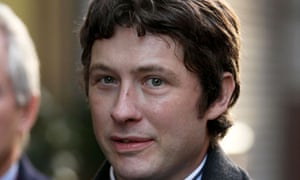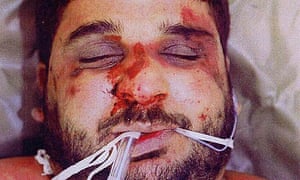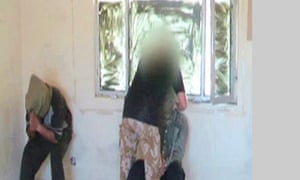
TWENTY years ago, when New Yorkers asked me where I was from, all I’d say is that I grew up in Britain. Mentioning that I was born in Bangladesh drew only more questions, and New Yorkers simply wanted confirmation of what was to them the distinctive cultural marker: my British accent.
That accent was learned from imitating BBC News announcers on a cassette recorder. As a boy, I read about the destruction of millions of Jews and was gripped by fear: If white Europeans could do that to people who looked like them, imagine what they could do to me.
So I adapted, hoping to make myself less alien to these people so ill at ease with difference. I grew up not so long ago in a Britain that spat at nonwhites, beat us and daubed swastikas on walls.
Britain frightens its natives with the specter of a fifth column, and exhorts immigrants to integrate better and adopt British values. Do it and you’ll earn your stripes. But the promise is hollow, for Britain has no intention of keeping its side of the bargain.
Recently, I was invited onto the judging panel for the PEN Pinter Prize, English PEN’s award (honoring the playwright Harold Pinter) for a writer who “casts an ‘unflinching, unswerving’ gaze upon the world, and shows a ‘fierce intellectual determination’ ” to define “ ‘the real truth of our lives and our societies.’ ” Salman Rushdie and Tom Stoppard are past winners.
The announcement of the panel, which included Peter Stothard, the editor of The Times Literary Supplement, described me thus: “Born in rural Bangladesh, Zia Haider Rahman was educated at Balliol College, Oxford, and at Cambridge, Munich and Yale Universities. He has worked as an investment banker on Wall Street and as an international human rights lawyer.”
The Man Booker Prize administration released a statement congratulating Mr. Stothard, a former judge of its award, and mentioning the two other appointees: “Vicky Featherstone, artistic director of the Royal Court Theater, and Zia Haider Rahman, a Bangladeshi banker turned novelist.”I have no idea what citizenships my fellow panelists hold; unhelpfully, Man Booker did not provide that information. I was, however, surprised to learn that I’m Bangladeshi. I don’t have a Bangladeshi passport, though I do hold a British one. In fact, I’ve lawfully held two valid British passports (to facilitate travel to so-called incompatible countries, like Israel and Jordan).
Clearly, holding two British passports doesn’t make me doubly British. But surely, for a bastion of the British establishment to call me Bangladeshi, it should have sufficient reason to believe that I am precisely that. Shall we put the error down to mere ignorance of the fact that millions of British citizens were born in, or are descendants of people born in, the post-colonies? Of course, keeping me Bangladeshi has the advantage of enabling some people to tell me to go back to my own country.
The issue is not what I choose to call myself but what the supposedly educated Briton chooses to call nonwhite British citizens. Britain has a problem with otherness.
This problem is not exclusively a British one. Although the “Brexit” campaign over a referendum to determine Britain’s exit from the European Union has revealed a nasty undercurrent of hostility toward other Europeans, the British do share something with the Continent.
I recently appeared on “Buitenhof,” a political program on Dutch television, to argue that Europe’s colonial history has left a stain on its psyche, an animus against foreigners. Afterward, aside from the usual racist mail, there were messages from nonwhite Dutch people, most taking issue with one thing. Apparently, I needn’t have qualified my remarks by saying things were worse in Britain. They were just as bad in the Netherlands. Life for immigrant Europeans is a daily confrontation with micro-aggressions and gestures of alienation.
I have been cosseted in Amsterdam for several months, where I am a writer in residence at the university and my novel is a national best seller. Last month, I attended the annual Boekenbal, a gala celebrating Dutch publishing, the main purpose of which, I learned, is to generate gossip about who is deemed worthy of tickets. In other words, its function is to establish an inside group.
My publisher invited me to a dinner before the gala at a restaurant. Midway through, I remembered my coat: On arrival, I’d left it somewhere and forgotten about it. When eventually a member of the staff and I found it, valuables still present, I thanked him.
“It is a pleasure to have you here,” he replied. Slightly odd formulation, I thought, putting it down to translation.
“No, sir,” he added, lowering his voice, “I mean it is an honor to have you here.” I looked at the man again.
“I saw you on ‘Buitenhof’ last week, and everything you said was right. But the Dutch won’t understand it because they can’t see it.”
“What’s your name?” I asked.
“Emile,” he said, shaking my hand. “It’s the name I use at work. My parents are Egyptian, but I was born in the Netherlands. I’m the sommelier here and I know everything there is to know about wine.
“I speak Dutch fluently,” he went on, in English. “I know more about Dutch culture than most Dutch people. I am Dutch, but I’m never really accepted as Dutch.”
The encounter moved me, and I stepped out into the cold Amsterdam night to recover my composure.
These days, when New Yorkers ask me where I’m from, sometimes I might say, for the hell of it, “I was born in Bangladesh.” Unfailingly, it’s not enough. Often, bless ’em, they say, “Yeah, but you’re British, right?” I have to cross the Atlantic to hear this.
I’ve learned to cope. But when I think of the children in the projects where I grew up, and in the underprivileged school in London’s East End where I sat on the board, I know that taking refuge in the novelist’s seclusion would be an abrogation.
Every battle of ideas is fought on the terrain of language. To the white Briton, the hyphenated identity — Bangladeshi-British, Pakistani-British — only highlights otherness. Each side regards the hyphenated identity as a concession to the other, rather than both rejoicing in a new stripe in a rainbow nation.
It does not come easily for white Britons to speak, face to face, of a nonwhite Briton’s nationality. The shuffling feet, the throat-clearing, the unmet eye give it away. Hyphenation sounds clunky, feels awkward; even calling someone just British is less pointed, less charged. The British have history; the Bangladeshi-British have punctuation.
It is Britain’s inherent cultural problem with otherness that makes it difficult for the native to call me British, difficult even for those who, one might naïvely hope, should know better.
If you’re not going to call me British when I grew up in Britain; when I hold a British passport and don’t hold a Bangladeshi one; when I don’t even speak Bengali; when, good citizen that I try to be, I help an elderly neighbor with his Ikea bed, or dig out the old lilac that another cannot uproot; when I was educated in Britain, worked in Britain, was “a body of England’s, breathing English air/Washed by the rivers, blest by suns of home”; when I wash the dishes at the local church’s fund-raiser for the homeless (because regardless of faith, we surely all believe in the idea of community); and again — it bears repetition — when I hold a British passport “without let or hindrance,” then you can’t be surprised if, doubting your good faith, I grab my bags and get the hell out.
After all, how much more can I integrate? What more is it you want from us? To be white? To be you?




